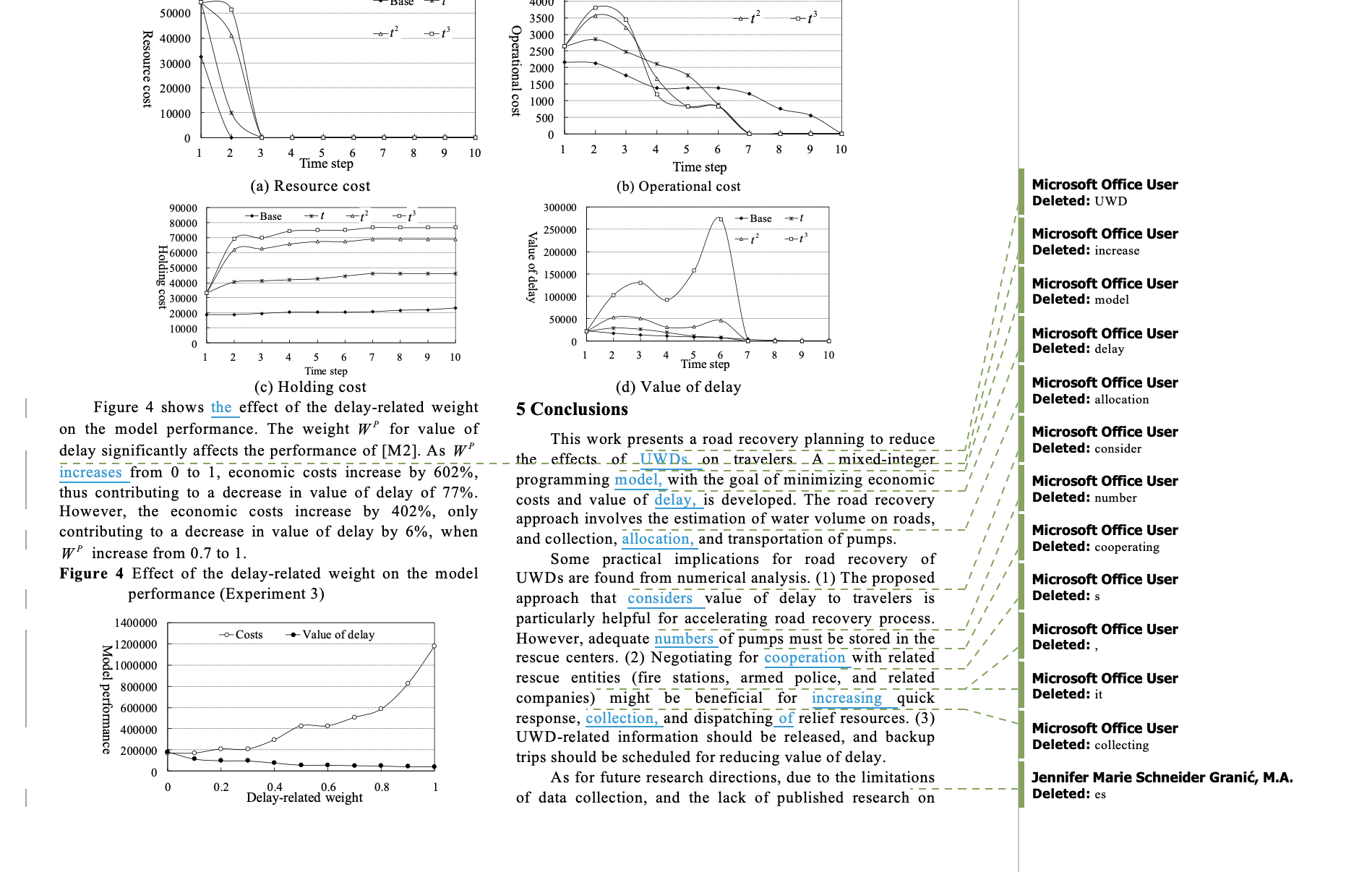
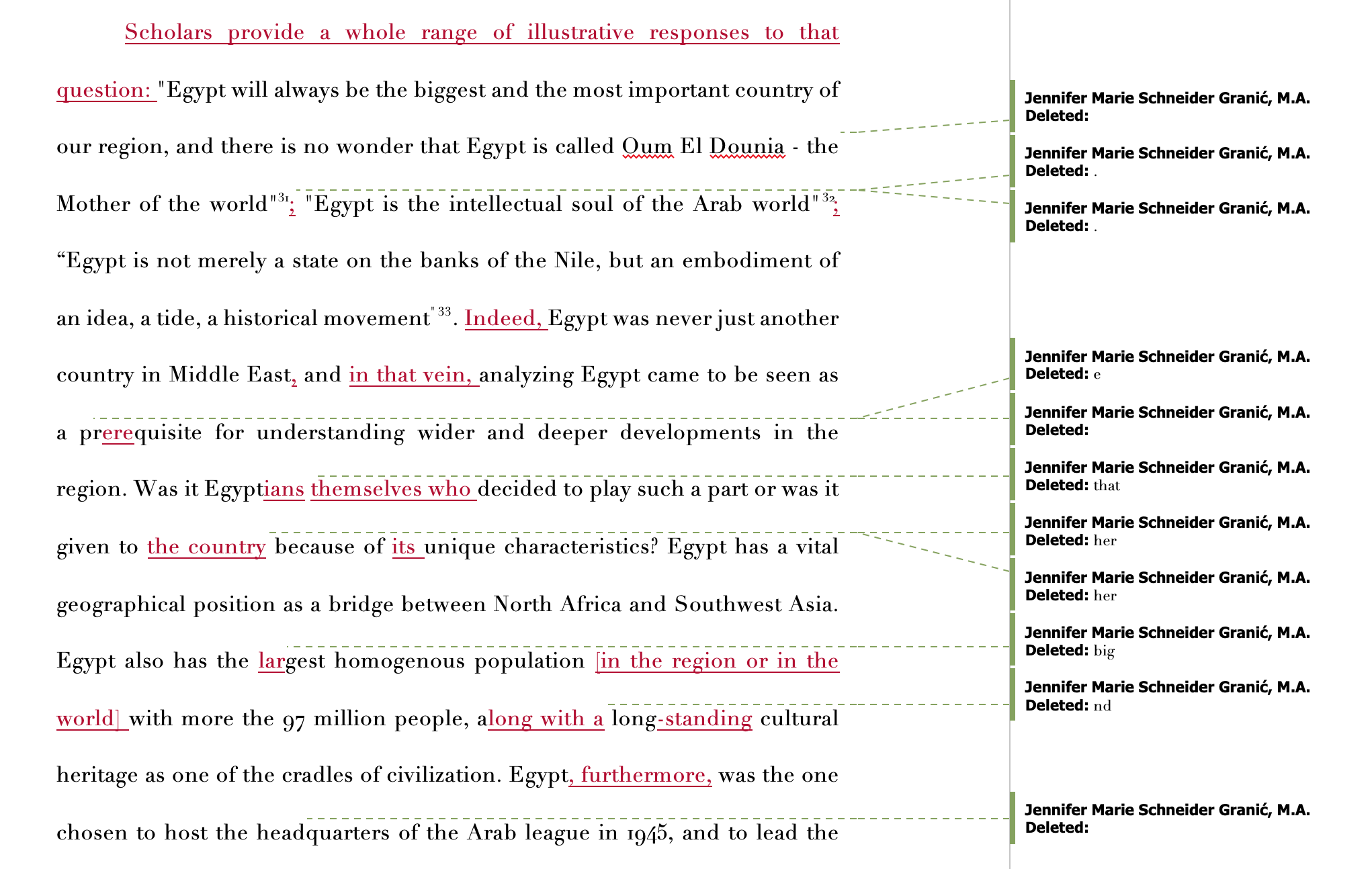
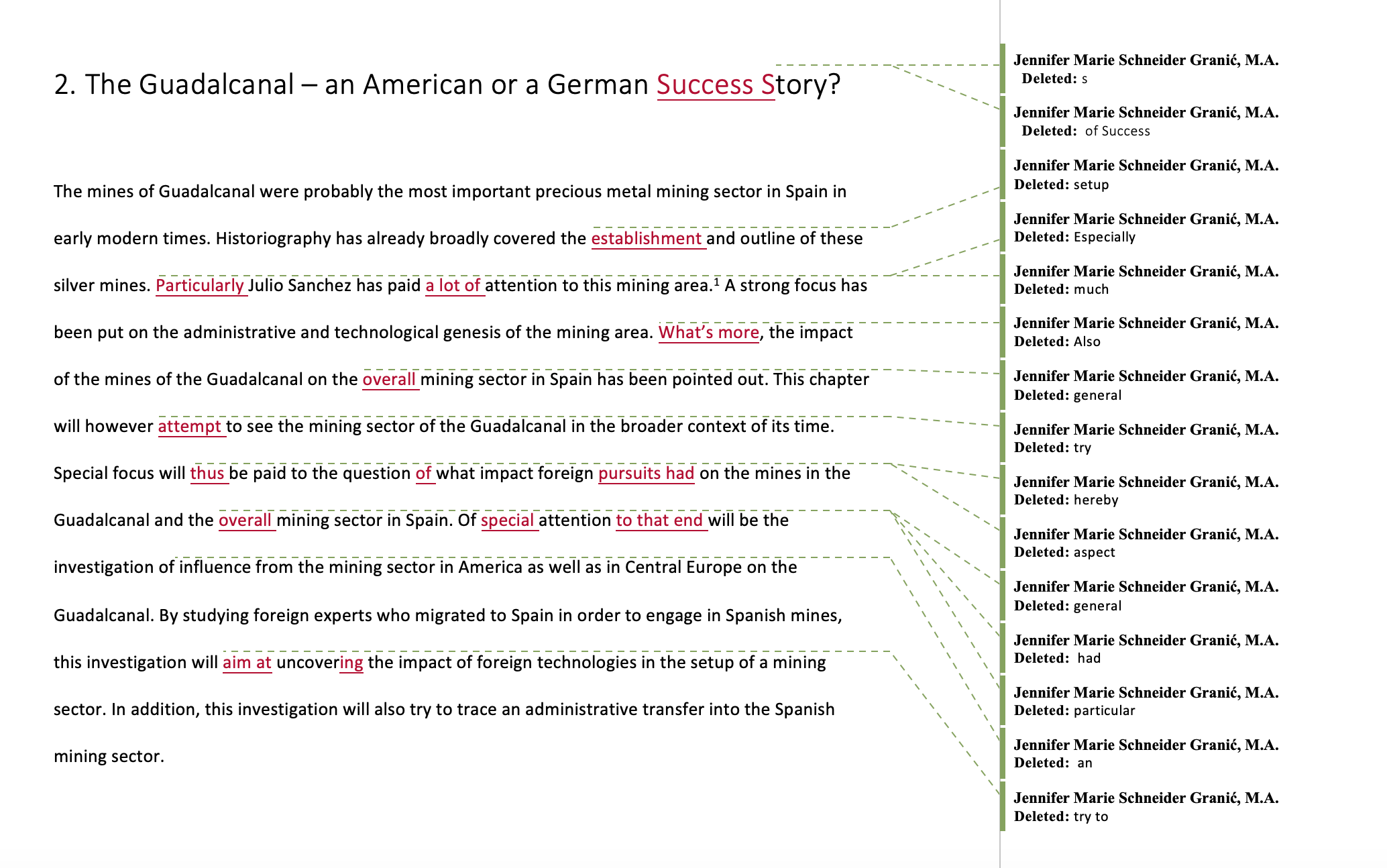
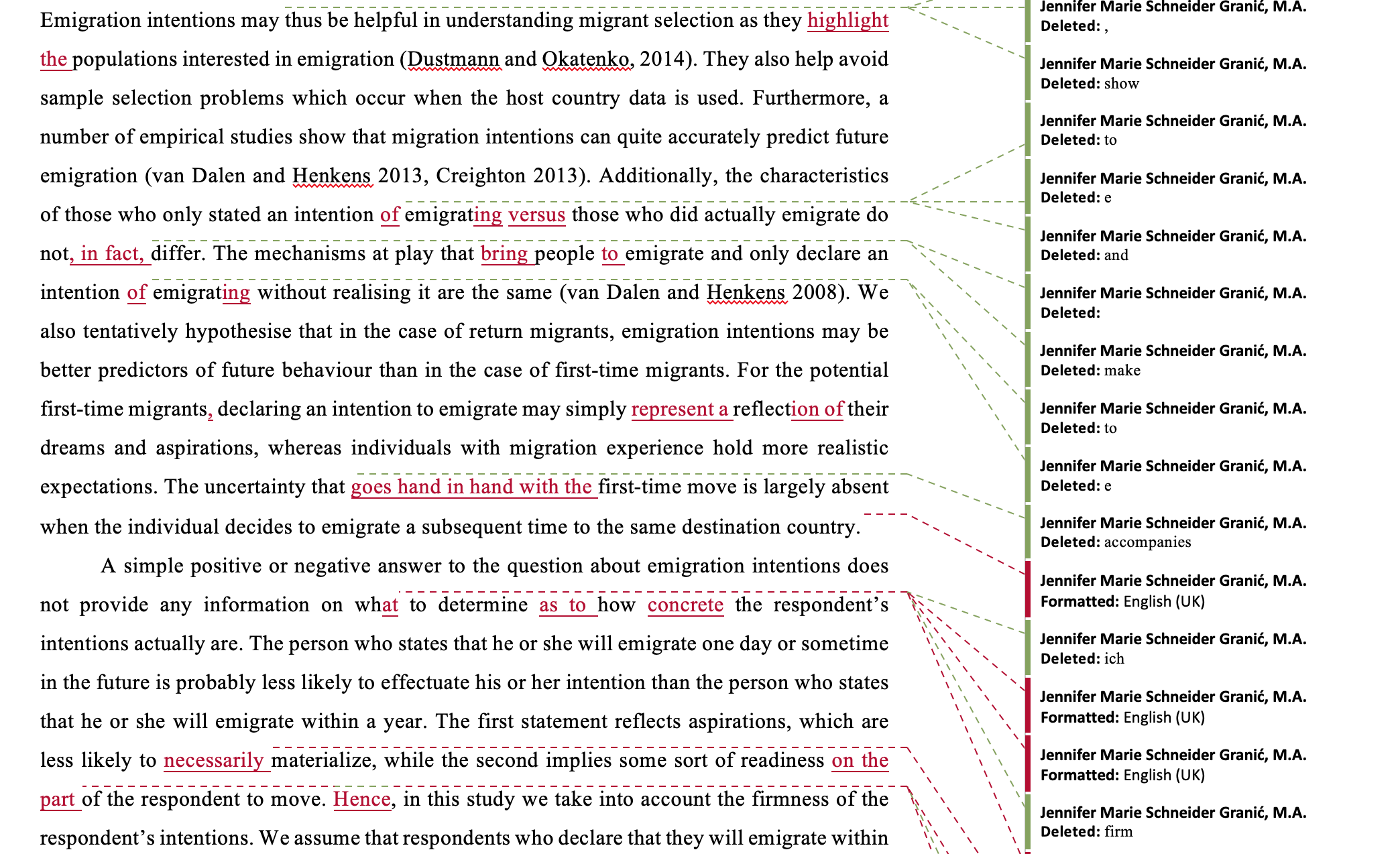
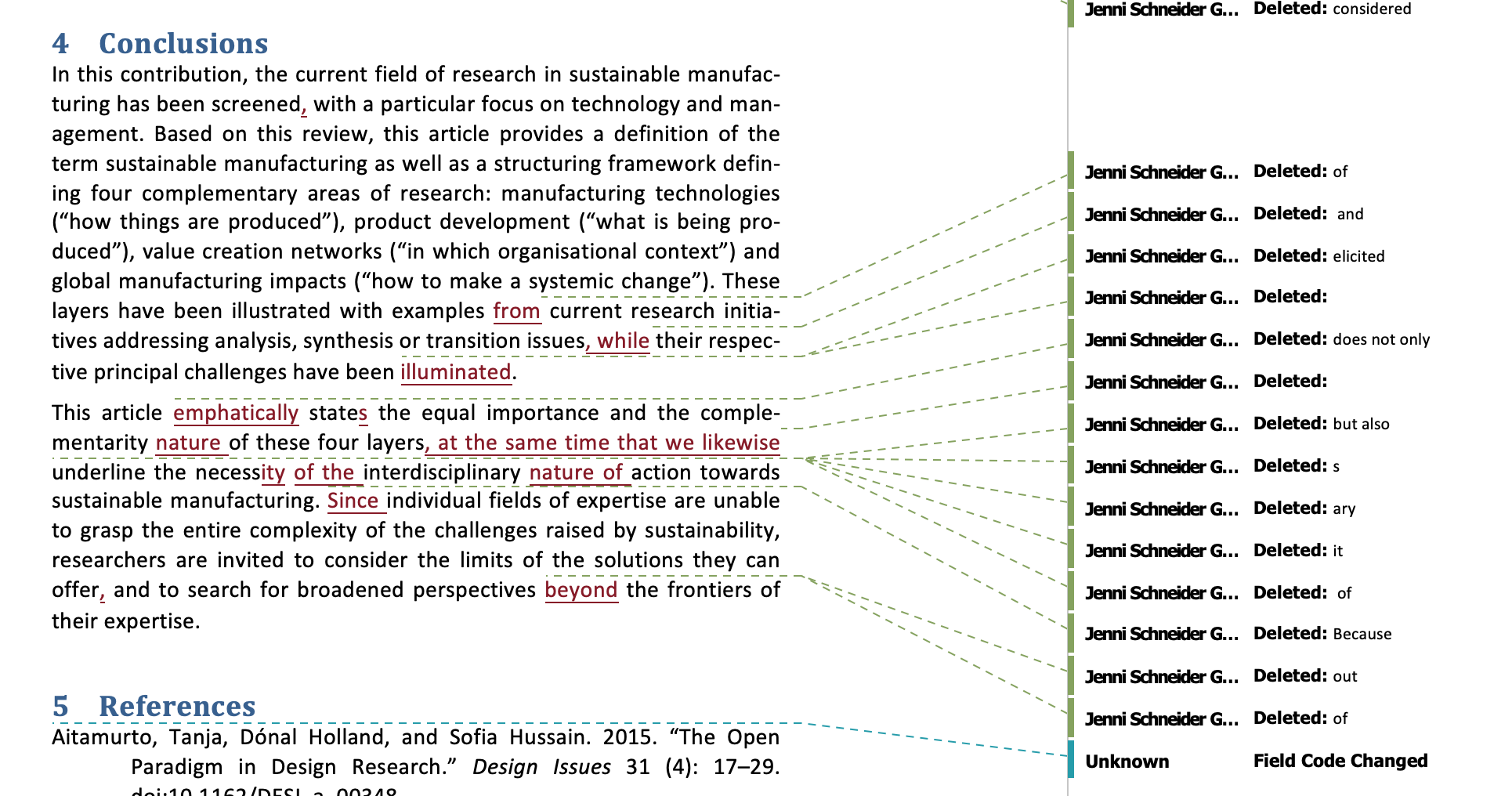
Are you an aspiring scholar who writes increasingly in English in order to reach a wider audience
for your academic articles?
Are you a professor trying to convert the elegance you write in German into refined text in English?
Are you interested in the kind of light copyediting that will make your text sound more natural
and boost your core arguments without compromising your original voice and style?
Are you a German speaker whose English is excellent but as far as writing goes, your texts lack
that finesse and flow needed to get published?
Do you have a small budget for proofreading/copyediting and want to make the most of your funds?
I’m the woman for you in your pursuit of an authentic voice in English!
This is specifically the experience that I’ve had in recent years. I combine a unique blend of proofreading and light copyediting for German-speaking scholars’ needs and have a proven track record in assisting professors in their efforts to write model, excellent academic articles.
Are you just beginning to write your article? Here are some important tips I have for you from the beginning!
1. Don’t say ‘the authors decided.’ You wrote this article, so you own it. There’s no need to write in the passive voice when it comes to identifying the parties behind the study. It not only sounds awkward but also 19th century. It’s also very uncommon in the English-speaking world to refer to anyone but “I” or “we” when referring to your work and what measures, methods, theories and other elements you applied in your pursuits.
2. You’re probably overusing the word ‘therefore’. There are plenty of better alternatives. For that reason, as a result, and on account of that — are at the top of my list.
3. You’re definitely not using enough transition words. Transition words are the nuts and bolts and screws holding up your arguments. Without proper transition words, your reasoning sounds barebones and in some cases, the whole meaning gets underemphasized or lost altogether.
4. Shorter sentences in no way detract from your logical reasoning! On the contrary, shorter sentences help drive home your point and communicate your arguments more effectively. It is in no way less academic to express yourself in succinct thoughts. Long sentences are definitely cumbersome and in some cases, confound matters entirely. Embrace succinct and powerful thoughts to help get your point across!
5. Don’t forget to introduce the quotes! Quotations cannot stand alone without a short introduction. You simply must say something in the same sentence leading up to the quote before you actually quote someone. It can be as simple as ‘Jones et. al made a compelling case when they mentioned: “____”’ or ‘Spellmann put it very well when he said: “____”.
6. Read plenty of academic articles written by native English speakers in the very journals that you would like to contribute to before you sit down to your own writing process. Highlight some phrases that you found very powerful and convincing and try to embrace them in your own way.
7. An occasionally informal tone does not have to convey unacademic approach in any way. On the contrary, an occasional burst of colloquialism ⎯ especially when you’re summarizing several ideas or providing the core analysis ⎯ can help highlight your point in a very lucid and vigorous way.
8. Don’t throw the baby out with the bathwater in that way, however, by adopting elements that are definitively too informal, such as the ampersand- & - does not belong in an academic text! It only belongs in a text message or in a big banner advertising the Barnum & Bailey Circus!
9. Consider embracing the em dash - .. Here is the full explanation as to when you can use it. LINK. It’s one of my favorite tools for including extra information in a way that helps the reader digest the whole thought as best as possible. The em dash is like an enzyme for your mind consuming a lot of diverse kinds of brain food.
10. Semi-colons do not replace transition words. Your two thoughts might be related and one thought might even feed directly into the next. Simply connecting them with a semi-colon, however, in no way allows you to get out of using transition words! Semi-colons are to be used very sparingly, as a result.
SUPERIOR proofreading and correction of English academic texts by American English teacher/Political Scientist/writer based in Vienna, Austria. With utmost precision, passion, and persistence, your work will stand out to your professors as not only correctly written in English, but communicated with rigor, exactitude, and grace. A life-long passion for writing enables me to bring an extra element of scrupulousness and love to my work. My first writing award was won at the age of 12. Proven excellence in academic writing also renders my work special accuracy and attentiveness. Your thesis is thus in good hands!
With utmost precision, passion, and persistence, your work will stand out to your
professors as not only correctly written in English, but communicated with rigor,
exactitude, and grace.
Jennifer Marie Schneider Granić
There has always traditionally been a big difference between proofreading and copyediting, with proofreading being restricted to correcting glaring errors, such as mistakes in spelling, grammar, punctuation. Some proofreading styles also involve simple marking up of such places, short of actually necessarily actually correcting them, i.e. instead just pointing them out. Other proofreading styles involve actually changing those errors in the text.
In the journalistic cycle, proofreading is typically the very last step done—after the editing copyediting, etc.—as a final recourse before the content is sent to the printers, so to catch any final inconsistencies or errors. So proofreading is typically done only once the text is basically 97% ready to go, just as a final check to catch any potential bloopers or mishaps or typos. A good proofreader should nevertheless not only scan the document for mistakes, but actually read through each sentence to make sure everything is as it's supposed to be.
Meanwhile, copyediting typically involves more careful and painstaking review of the content at hand. Copyediting goes beyond the basic mechanics of correcting errors in grammar, punctuation, or spelling, and examines such matters as style, tone, clarity of argument or meaning, consistency in formatting, smoothness of transition, among other matters.
Copyediting also typically involves fact-checking, cross-checking references to the graphics ortables in the document, and cross-checking text references with the bibliography as well. Copyediting does not, however, venture into the domain of massive overhauls of the text or major changes in substantial parts of the text in terms of word choice or story flow. This is the domain of editing—which influences the content itself, the build-up of the story, order of events, and generally, speaking, the overall quality of the writing itself. Copyediting stops at minor improvements that do not change the meaning or content of the text itself.
As far as the services we provide, a strategic combination of copyediting and proofreading is conducted to suit specifically German-speaker and other non-native English speakers' needs in drafting texts in English. Since the vast majority of the content we handle is written by non-native speakers of English, the quality of the content is almost never 97% ready as would be the case if only proofreading were necessary. The quality tends to be somewhere at a maximum of 80%. We go in there with our sleeves rolled up and change words that, for example, are clearly meant in a different way than the writer wrote based on the false friend vocabulary of the German-speaker mind. Non-native speakers frequently neglect to use sufficient transition words or use them incorrectly altogether. So for us, polishing up such phrases or adding them in when necessary is an important part of the work we do, squarely falling within the realm of copyediting. Correcting grammar, punctuation, and spelling is certainly a huge part of the work done as well.Such issues as use of incorrect quotes -- « » instead of “”—is something that typically comes up, along with incorrect fractions, i.e. $3,40instead of the appropriate $3.40. Then there's the run-on sentence, or a sentence that is far too long or contains more subjects and verbs than is digestible for the reader whilst also being grammatically incorrect on account of the lack of transition words, commas, and/or semi-colons. These are typical problems we run across and have to polish.
Where our copyediting pursuits are narrower than the standard interpretation is when it comes to fact-checking or plagiarism-checking. These areas are squarely and entirely beyond our capacity as we see ourselves in terms of improving the overall level of English and readability in a given text. We also don't normally address the style of documentation or referencing. Since our clients typically come from very diverse contexts, the various citation methods are likewise quite diverse, making it hard to immediately follow any inconsistencies. Upon request, however, we are nevertheless very pleased to consider any requests to that extent on a case-by-case basis, and in case of use of the MLA or APA stylebooks as reference—the styles we're most familiar with--, we are happy to check citations accordingly.
All in all, we combine copyediting and proofreading services to do the job needed by non-native speakers, which is to significantly overhaul and improve their text in terms of grammatical correctness, readability, authentic language and overall quality. We take it from 73% acceptability and bring it up to 99%.
For the full story, download my Curriculum Vitae
Schwerpunkt deutschsprachige Studenten* Aufgrund meines guten Deutschkenntnissen, bin ich besonders fähig, Ideen die auf Deutsch formuliert waren, ins gute Englisch zu bringen. Teil Übersetzung ist auch möglich.
Russian language knowledge and daily usage of Croatian (due to Croatian husband) allow me to follow the slavic-language train of thought very well also.
Download my own Academic Essay or Poetic Prose.
You can expect the following elements to be taken into consideration in my proofreading:
The following items WILL NOT be considered in the correction process, and are instead YOUR responsibility as an academic researcher:
For standardization and to avoid formatting confusion, price is calculated per word at a fair base price. Prices are valid for projects sent at least 30 days in advance of deadline. Projects which have a deadline of less than 10 days are defined as rush-jobs, and are subject to additional fees.
0.025€ per word
Special offers of up to half-price are available depending on your topic--topics of particular interest to me are in these areas: migration history, civil rights, racism, and non/discrimination policy, multiculturalism, colonialism, identity politics, Eastern spirituality in the West.
Get a concrete glimpse of how we work in the following samples.




